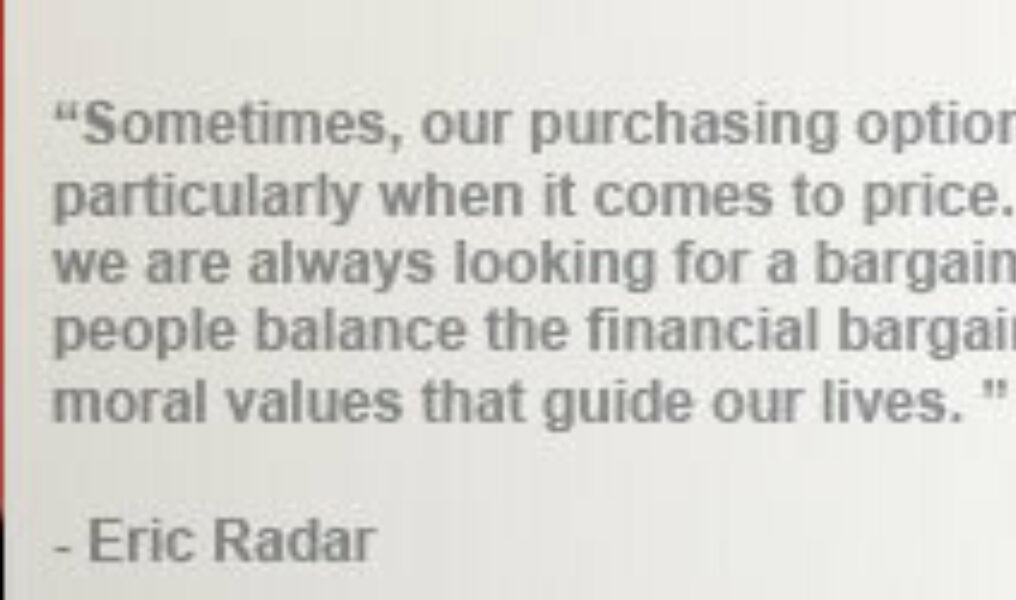by Eric Rader

HRC's Corporate Equality Index: http://www.hrc.org/issues/cei.htm
Text of the DISCLOSE act: http://tinyurl.com/342j3gn
Contact Sens. Levin Stabenow to voice support for the DISCLOSE Act:
Sen. Levin: http://levin.senate.gov/contact/
Sen. Stabenow: http://stabenow.senate.gov/email.cfm
Earlier this year, the Supreme Court ruled in the Citizens United case that corporations have a First Amendment right to spend as much money as they want on political campaigns.
The high court's decision was celebrated by big business interests, but sharply criticized by public interest groups and others who recognized the negative impact it would have on democratic participation in the United States. This decision was a sharp deviation from prior Supreme Court decisions on campaign finance issues, which had put limits on corporate spending in campaigns. The high court opened the floodgates for wealthy business interests to spend unlimited amounts of money to elect their favored candidates and influence the decisions of high-level governmental officials.
Those who celebrated the Citizens United decision claimed that it would strengthen American democracy and would have a positive impact on our campaigns. Just a few weeks ago, we saw how wrong these people were.
Target Corporation decided to take advantage of the Citizens United decision by contributing $150,000 to Minnesota Forward, a conservative organization that has endorsed a homophobic candidate for Minnesota governor, Tom Emmer.
The Target donation is particularly insulting to our community because Target stores have earned a reputation as a great place for LGBT people to work, with inclusive non-discrimination and domestic partner employment policies in place. Target Corporation has sponsored gay pride events in the Minneapolis area, and Target stores are a popular shopping destination for many members of the LGBT community (affectionately called "Tar-zhay" by some customers). The Human Rights Campaign has given Target a 100-percent score in its last several Corporate Equality Indexes.
In response to Target's contribution, a number of LGBT and progressive organizations have called for a boycott of Target stores. A question arises, of course, as to whether a boycott is necessary. Target still maintains strong policies of inclusiveness and did offer an apology to those who might have been offended by the company's decision to contribute money to Minnesota Forward. In the weeks since this issue arose, the company has taken pains to emphasize its support for the LGBT community.
On the other hand, we should expect more from a supposed ally of our community. LGBT customers spend a lot of money at Target stores, and certainly the company owes those customers respect in how it uses its financial resources.
In addition to highlighting the negative consequences of Citizens United, this incident also points to the necessity of consumers making socially conscious purchasing decisions in the marketplace. All of us should be aware of who we're giving our money to when we shop for groceries, go out to eat, buy consumer electronics, or purchase a car. We have many choices, and should make every effort to ensure that our purchases reflect our values.
Sometimes, our options may seem limited – particularly when it comes to price. In a tough economy, we are always looking for a bargain. It is important that people balance the financial bargain with the ethical and moral values that guide our lives.
Some of us choose to boycott certain stores to protest the policies of a corporation, knowing full well that our individual decision to stay away from a store will not have a dramatic impact on that company's bottom-line. But it's about our own values and what we believe is important.
People make individual choices as to where they shop, and a boycott may not be feasible for various reasons. In the case of Target, the company's positive stance toward the LGBT community makes it different than companies which have low ratings on the Corporate Equality Index. Of course, many would rightly argue that Target's positive record is exactly why that company should be held to a higher standard.
Ultimately, all consumers – and voters – need to educate themselves on these issues. It is important that we remind the businesses that we patronize that we expect them to value our dignity, and we must let them know when they disappoint us. We should also put pressure on the Senate to pass the DISCLOSE act, legislation already passed in the House that would increase corporate transparency in the aftermath of the Citizens United decision. Our voices need to be heard, especially when the other side has so much money to spend. American democracy depends on our participation and continued vigilance.










